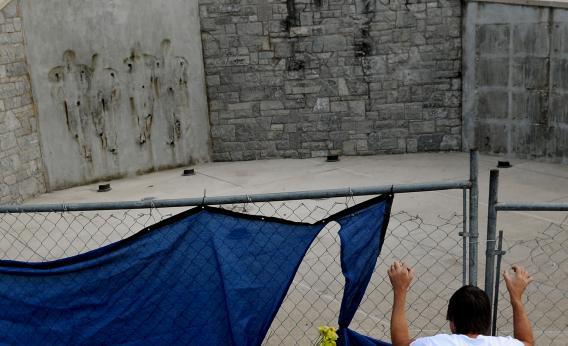Does anyone else have mixed feelings about the NCAA sanctions against Penn State football? On the one hand, I’m persuaded that the university’s leaders tacitly allowed Jerry Sandusky’s abuse of children to go on for years because they were blinded by a “culture of reverence for the football program.” Josh Levin argued last week that this calls for sidelining the Nittany Lions for a season or two. I see the argument for that, as long as the players can transfer to other schools without having to sit out a season.
The NCAA did provide for transfers without penalty today. But I’m still queasy about how it went about grabbing the moral high ground. The $60 million fine Penn State will pay is supposed to go to “an endowment for external programs preventing child sexual abuse or assisting victims.” That sounds unassailable—except why is the NCAA setting up such an endowment? Shouldn’t this be part of the settlement the university will surely have to reach with Sandusky’s victims? I’m not sure what the NCAA is doing in preempting that process. It makes more sense for a judge overseeing all this litigation to approve one global resolution, after the parties have hammered it out. I’m all for setting aside money for prevention along with compensation. But I don’t see why the governing body of college sports should butt in to the judicial system here.
That’s especially the case given the NCAA’s suspect history and continuing questionable treatment of individual athletes. If you’ve been reading Joe Nocera’s work on this in the New York Times, you know what I’m talking about. The governing body of college sports has a lot to answer for, and all too often seems to put sports ahead of education. So it’s galling to hear NCAA president Mark Emmert now intone, invoking the Penn State sanctions, that “football will never again be placed ahead of educating, nurturing and protecting young people.” Please. Of course it will, every other day of the year.
It’s also odd that the NCAA acted without the usual process of a hearing in front of its Committee on Infractions. Emmert decided that Louis Freeh’s damning report about the university, which Penn State’s own trustees ordered, would take the place of further examination. Why bypass the usual process— what’s the rush?
I also don’t quite understand the idea of “vacating” all of those wins going back to 1998. Maybe the problem is that vacate is such an odd word here. But I’m also not sure what I think about penalizing all the players and coaches who made those victories happen. It just doesn’t seem like the right way to rectify the wrongs.
The NCAA also banned Penn State from postseason play and reduced the team’s annual scholarship allotment from 25 to 15, with each penalty in effect for four years. I see the point: Make the university itself suffer, by crippling what has been one of its greatest assets. And yet, once more, I’m not even sure how much I can get behind this. Why penalize the current and future athletic department, which is no longer led by the people who failed to stop Sandusky? I’d rather see former Penn State President Graham Spanier prosecuted.
The NCAA is coming down not on the individual wrongdoers, but on every Penn State fan. I know some of them are acting crazy in their slavish adoration of JoePa. But many more are surely already punishing the university and themselves. That, plus the civil lawsuits, should be enough.
UPDATE: Here’s former Penn State President Graham Spanier’s response to the Freeh report.
